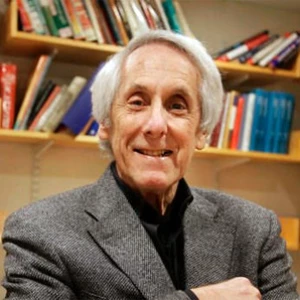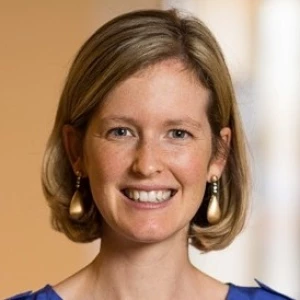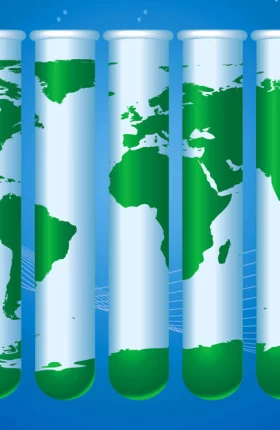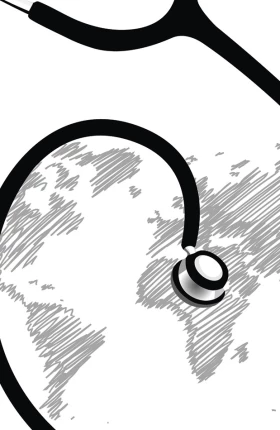Earlier this year, the World Health Organization removed India from the list of polio-endemic countries, a victory that involved 2.4 million volunteers administering the vaccine to nearly 172 million children. Only three endemic countries remain—Pakistan, Afghanistan, and Nigeria—and a massive 24-year global effort to eradicate the disease forever is now within striking distance of its goal. However, there is still a very real danger that the entire campaign could come undone if obstacles to vaccination stall further progress and enable the disease to escape its current confines.
An intensive effort is underway to prevent any further spread of the virus while attacking its remaining sanctuaries in the three endemic countries. India has set up checkpoints at train stations near its border with Pakistan to vaccinate children as they enter the country. When an outbreak of polio occurred in western China last year, the WHO traced it back to Pakistan; Chinese authorities rapidly mobilized an immunization drive in the area to contain the problem.
The key to preventing a reintroduction of the virus into currently polio-free countries around the world is to maintain high immunization rates in all countries until the disease has been completely eradicated. Because only 1 percent of infected individuals develop symptoms of the disease, in a highly mobile world there is a danger that silent carriers of the virus may carry it to polio-free countries. If vaccination rates are permitted to drop, this could trigger a resurgence of the disease.
One challenge confronting the polio campaign is geopolitical. In each of the three remaining polio-endemic countries, the disease is concentrated in regions with large Muslim populations that are home to militant insurgencies. There have been persistent rumors in these regions that the vaccine is actually intended to sterilize Muslims, leading to widespread vaccination refusals. In Pakistan, anti-Western militants have vowed to block vaccination drives until the U.S. ceases its drone attacks. Last week, during a national polio vaccination drive underway in Pakistan, violent attacks against health workers took one life and injured two others.
But the biggest danger faced by the campaign is a dramatic funding shortfall of $945 million—almost half the amount originally budgeted for 2012–13. This has led a swath of countries, especially in central and western Africa, to cancel or postpone polio immunization drives. This leaves millions of young children at risk of contracting the disease from infected individuals who may travel from endemic countries. The consequences could be catastrophic if the budget gap is not closed and the disease breaks out of its current sanctuaries.
The Global Polio Eradication Initiative’s total budget for 2012–13 is $2.19 billion. To date, the campaign has received $1.24 billion in commitments, of which 20 percent comes from the affected countries themselves. Another 15 percent comes from private-sector institutions including Rotary International and the Bill & Melinda Gates Foundation, 14 percent from Group of Eight countries, and 6 percent from multilateral organizations such as UNICEF.
Alarmed by the funding shortfall and canceled vaccination drives, the World Health Assembly, WHO’s governing body which includes delegations from its 194 member states, voted on May 25 to declare the polio situation to be a “global emergency.” Last month, the Independent Review Board of the Global Polio Eradication Initiative, which serves as an official watchdog over the campaign, issued a report warning that cutbacks in vaccination campaigns are “escalating the risk of an explosive return of polio just as it is at its lowest level in history.”
The IRB report identified 20 African countries that were infected by polio imported from Nigeria from 2006–10, 18 of which have now canceled or trimmed vaccination campaigns because of the funding shortfall. The IRB report estimated that 94 million children will be affected by the cutbacks by the end of this year.
Beyond the campaign’s urgent immediate need for full funding, another crucial ingredient for achieving success in the three remaining endemic countries is the strong and sustained engagement and support of the nations’ political leaders at both the national and provincial levels. This must include a sustained outreach to Muslim religious leaders to win their support in encouraging vaccination among their followers, a process that is underway.
Notwithstanding the polio campaign’s current challenges, its accomplishments to date have been remarkable. Worldwide, there were approximately 650 cases of paralytic polio last year, down from 350,000 each year in the 1980s. A study published in the journal Vaccine in 2010 projected the net economic benefits of the polio eradication campaign, if taken to a successful conclusion, at $40 billion to $50 billion through 2035.
The challenges faced by the polio campaign are emblematic of problems that affect worldwide efforts to conquer vaccine-preventable diseases such as measles and whooping cough. Vaccines are among the most powerful and cost-effective weapons against disease ever invented by humankind. It takes just a few drops of the orally administered polio vaccine, given in several doses, to protect a child from polio for a lifetime—at a cost of only $0.11 to $0.14 per dose.
And yet, the full benefits of available vaccines have yet to be fully realized. The global health community has declared 2011–20 as the Decade of Vaccines, and has embraced an aggressive set of goals of providing universal access to current vaccines and spurring innovation to develop new ones.
A Global Vaccine Action Plan was recently completed through a massive collaborative effort assisted by The Boston Consulting Group and involving 1,100 experts from almost 300 organizations. Endorsed by the World Health Assembly, the plan provides a blueprint for achieving polio eradication and other ambitious goals. With sufficient funding and political will, the massive health and economic benefits of vaccines are indeed attainable.
Reprinted from the U.S. and Asia editions of The Wall Street Journal © 2012 Dow Jones & Company, Inc. All rights reserved.







